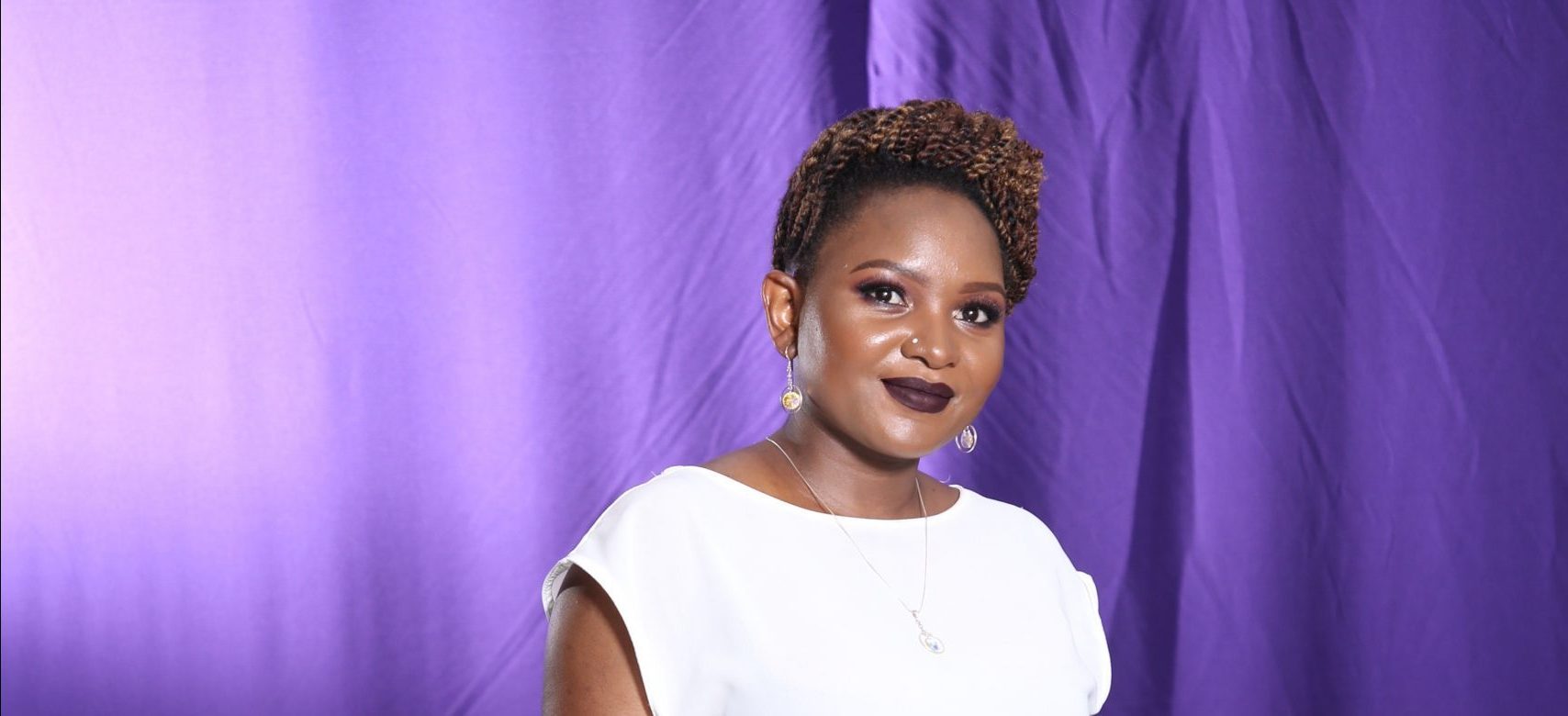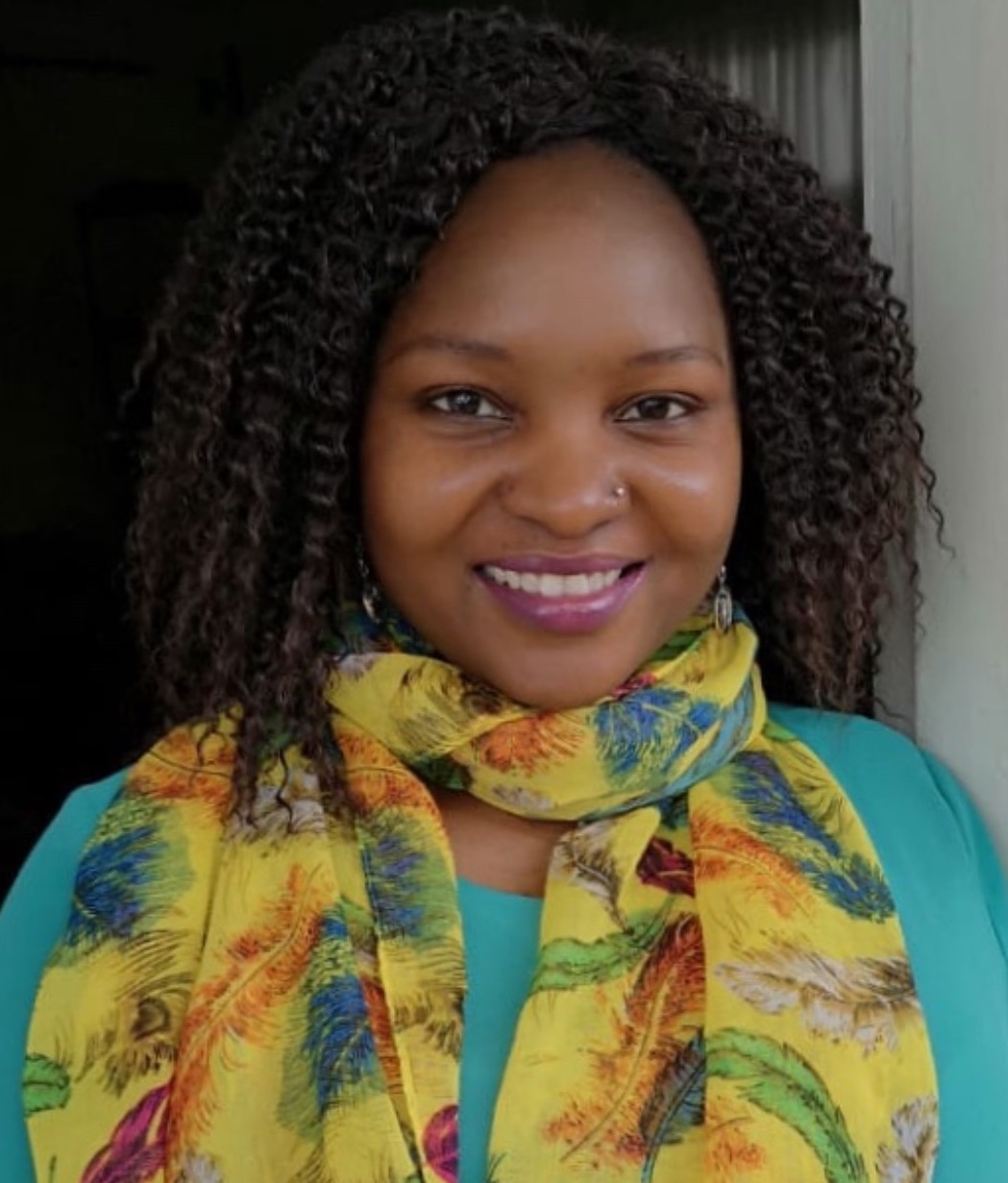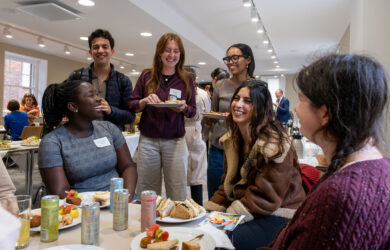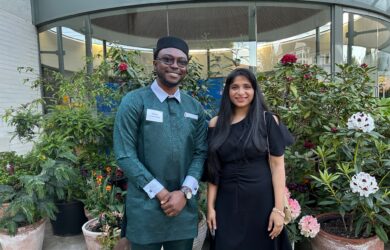
Rumbidzai Dube talks about her work as a human rights lawyer and about her PhD on the legacy of colonial boundaries in Africa.
I hope to provide key insights on how the African Union can effectively lead a decolonial agenda in which it counterbalances citizens’ and states’ interests to prevent conflict.
Rumbidzai Dube
Rumbidzai Dube has had over a decade of experience as a human rights lawyer, promoting women’s rights, defending fundamental freedoms, observing elections, monitoring gender-based violence, advocating state accountability and facilitating law reform across the African continent. Through her work, she has lived in Egypt, Ethiopia, South Africa, the Gambia and Zimbabwe, her home country.
Her career laid the groundwork for her PhD in Politics and International Studies which she starts in the autumn. Rumbidzai will examine the legacy of colonial boundaries in Africa and how the African Union can navigate the complexities of the international legal order to prevent conflict. She says: “My project is about decolonising colonial boundaries. I hope that in answering the existential question surrounding state formation in Africa and interrogating the idea of the inviolability of colonial borders and what it means for marginalised voices in our communities I can begin to bridge the gap between academic research and practical policy and provide key insights on how the African Union can effectively lead a decolonial agenda in which it counterbalances citizens’ and states’ interests to prevent conflict.”
Childhood
Rumbidzai [2019] developed an early interest in politics and current affairs. From a very young age, she and her father would listen to the BBC World Radio news every morning. Her father’s daily instruction was for her to listen attentively, narrate the stories she heard on the news and then discuss afterwards. “That morning ritual marked the beginning of my interest in international affairs,” she says.
Rumbidzai was born in Kadoma in central Zimbabwe, the second youngest of seven children. Her father was a headmaster and her mother worked in community development and the whole family worked on their fields in their rural home for extra income and sustenance. Rumbidzai attended two of her father’s primary schools and stayed there to study, returning home in the holidays. For secondary school she was sent to an all-girls Catholic boarding school where she became involved in the debate club and another club which raised awareness about HIV/AIDS. She excelled at history and English literature.
Following high school, she studied law at the University of Zimbabwe. Her four-year course involved completing an internship during the holidays. One of Rumbidzai’s internships was at the Zimbabwe Women Lawyers Association where she assisted professional lawyers who gave free legal advice and representation to women. During her degree, she decided that her interest lay firmly in helping vulnerable communities gain access to justice so she specialised in international law and human rights, environmental justice and women’s rights. She also volunteered for the Southern and East African Regional Centre for Women’s Law, working as a translator for students from eastern and southern Africa who were doing field trips in Zimbabwe.
Women's rights
After graduation, Rumbidzai began working at the Research and Advocacy Unit-Institute for Democracy in Africa (RAU-IDASA) office. Her work involved documenting cases of violence against female human rights defenders advocating for their economic and social rights or agitating for a new constitution, including trade unionists. In the lead up to Zimbabwe’s 2008 general elections, she analysed the barriers to women’s participation in the political process including the persecution of women political activists. During the elections she was an observer under the umbrella of the Zimbabwe Human Rights (NGO) Forum and witnessed the brutality of the 2008 presidential election run-off campaign in Zimbabwe, which was marked by gross human rights violations.
In the aftermath of the election RAU partnered with the International Centre for Transitional Justice and the IDASA office in South Africa to help women who had fled Zimbabwe due to the violence and documented their views on transitional justice. Rumbidzai recalls speaking to one woman who had a starving, crying baby on her back and had not been able to wash for days. The clearly traumatised woman told Rumbidzai in a detached way, how her husband, a political activist, had been set on fire and burnt alive in front of her, how her parents were also burned alive and she was raped. That conversation remains etched in Rumbidzai’s memory and she says it made her question what she was doing and whether it would ever adequately address the victims’ trauma.
From South Africa to Egypt
She stayed in that role for two and a half years until the end of 2009 when she embarked on a master’s in international law at the University of Pretoria, specialising in human rights and democratisation in Africa. “I felt the knowledge and tools I had were limited and I wanted to expand them and my networks to do my work more effectively,” she says. As part of the course she was posted to Addis Ababa in Ethiopia where she completed an internship in the Department of Political Affairs of the African Union and wrote her thesis under the supervision of staff at the University of Addis Ababa on the African Union’s response to unconstitutional changes of government in Africa. “I wanted to know what the African Union’s response was when dictators change the rules of the game to stay in power and to what extent they could get involved without infringing on sovereignty or refrain from action without facilitating dictatorship,” she says.
After her master’s Rumbidzai received a financial award from the Centre for Human Rights, University of Pretoria to do an internship at the Cairo Institute for Human Rights Studies in Egypt. She says she had long been fascinated by the narrative of Egypt as the cradle of civilisation and, through her work in Addis Ababa, had become interested in the debate on the Nile River, particularly the tensions between Egypt and Ethiopia over the Great Renaissance dam project. “The tensions between these two states reflected the challenge of unresolved colonial legacies. Egypt’s claims to the Nile derived from colonial agreements woven in a complex web of histories, politics, people’s livelihoods and human rights,” says Rumbidzai.
In addition to this burgeoning interest in Egypt, she was also very aware of the division between north and sub-Saharan Africa. “This division separates Africans in its mischaracterisation of the north as Arab and the essentialisation of the rest of the continent as a cesspool of conflict, disease, famine and poverty,” she says. Her decision to work in Cairo, covering human rights issues in North Africa, was her attempt to bridge the gap by learning more about the North while drawing connections with the rest of the continent.
Rumbidzai arrived in Cairo in the aftermath of the January 25 Egyptian revolts. Her time in Cairo was characterised by a sense of the political momentum behind the ebbing protests, of reform processes stagnating and of activists being arrested. “When I arrived there was dialogue about transitional justice and with each delay, people would still go out in the streets to protest. It was eye-opening to see the possibilities of a country in transition, but as things progressed it became clear that if that transition was not properly managed the country could very quickly go backwards,” she says.
Documenting rights issues
After her internship, Rumbidzai returned to Zimbabwe to the Research and Advocacy Unit [RAU]. She established the Parliamentary Performance Evaluation Programme to assess the effectiveness of Parliament at holding the state accountable to voters. She monitored, for instance, parliamentarians’ attendance scores, who spoke and what they spoke about, particularly with regard to human and women’s rights. RAU partnered with the Engine Room, an organisation that helps activists and organisations harness data and technology for social change to set up a system to evaluate interactions between MPs and their constituents by soliciting SMS reviews by constituents of their MPs. These reviews exposed examples of corruption, including vote-buying tactics, leading to an onslaught of threats over RAU’s work.
Rumbidzai also continued her work of seeking redress for women victims/survivors of politically motivated violence and to bring perpetrators to justice. Some of the women were sexually assaulted for their political views while others were targeted for their relationship with opposition activists. “The process of compiling legal affidavits for criminal prosecution was traumatic work as the testimonies needed to be very detailed and water-tight. Asking the women to relive their horrors in multiple ways to ensure consistency of facts at times felt like a revictimisation,” says Rumbidzai. Because of the lack of political will to prosecute these cases in Zimbabwe, RAU sought prosecution of the cases in South Africa through its partners. Arrest warrants were opened against the perpetrators and, although it was unlikely they would have crossed into South Africa, it was at least one way of curbing their right to freedom of movement, says Rumbidzai. “It also let them know that we knew what they had done and had documented it for future purposes,” she adds.
Rumbidzai left RAU in 2015 and moved to Banjul in the Gambia to work for the African Commission on Human and People’s Rights, an African Union body, as a legal expert on a communications programme. “I enjoyed my work in Banjul. We were creating a body of legal cases aimed at restoring the dignity of Africans. This work was also critical in showing patterns of human rights abuses on the continent and how they are perpetuated by remnants of colonial legislation, such as repressive laws that curtail freedom of expression, association and assembly, patriarchal laws that violate women’s rights and impede their full citizenship and exclusionary property laws that marginalise the poor and disenfranchise indigenous communities among others,” she says.
She then returned home to work for UN Women as coordinator of a multi-agency programme which aimed to end gender-based violence among adolescent girls and young women and after that for GIZ as national coordinator for programmes for civil society and civic participation which aimed to enhance the capacity of independent national human rights institutions. In both capacities, she found the transition from more hands-on activism to programme management and bureaucracy difficult. However, she is also very proud of the work she did supporting government law reform procedures, supporting civil society organisations facilitating access to justice for vulnerable populations and creating the procedures and documentation necessary for facilitating the work of the Zimbabwe Gender Commission and the Zimbabwe Human Rights Commission.
Cambridge
Rumbidzai’s journey to Cambridge University to do a master’s was difficult. Due to administrative issues her visa was delayed and she had to defer her studies for a year, but she had already resigned from her job and had leased her home. Fortunately, she was offered and accepted a one-year contract as a senior programme officer on children's rights at the African Child Policy Forum in Addis Ababa, Ethiopia, working with African governments on legal reform. Her most rewarding work was working with partner states of the East African Community to harmonise their national laws with international standards for the protection of children’s rights.
In 2018, after reapplying and going through the visa screening process again, Rumbidzai began her master’s in African Studies at Cambridge on a Chevening Scholarship. Her thesis tackled the problem of the tensions between African nationalism and self-determination in post-colonial Africa, drawing on an in-depth study of Zambia and the relationship between its first president Kenneth Kaunda’s leadership and Barotseland’s self-determination claims. The thesis investigated the different ways in which some processes of decolonisation arrested other processes of decolonisation and explored the hierarchies and marginalisation created in post-colonial transitions as well as their implications.
For her PhD, Rumbidzai will continue to explore the subject of borders. “I am persuaded through my experience of living and working on the continent that the only adequate response to the numerous problems Africa faces lies in answering the existential question surrounding state formation in Africa. I am interested in further examining the idea of territorial nationalism and exploring how the acceptance of colonially imposed boundaries relates to violent conflict on the continent,” she says.

Rumbidzai Dube
- Alumni
- Zimbabwe
- 2019 PhD Politics and International Studies
- Lucy Cavendish College
I am a pan-African feminist lawyer, born and raised in Zimbabwe. My interest in international affairs began at the tender age of 6, nurtured by my mother - a community development worker and my father - an educationist. I studied law at the University of Zimbabwe (LLB) and the University of Pretoria (LLM). Before coming to Cambridge for the MPhil in African Studies, I had over a decade of professional experience working in the development sector in Zimbabwe, South Africa, The Gambia, Ethiopia and Egypt with various NGOs, INGOs and IOs, including the African Union and the United Nations. My experiences stoked a desire to deconstruct the context in which Africa’s challenges persist, in particular how the African Union navigates Africa's positioning within a hierarchical global order. On the PhD in Politics and International Studies at Cambridge, I will interrogate the politics of territoriality within the contemporary regional politics of the African Union. The thesis will explore how historical trajectories of international law shape contemporary realities, by examining how the AU addresses questions of territoriality in maritime governance, the border politics of the continent and international criminal justice.
Previous Education
University of Cambridge African Studies 2019
University of Pretoria International Law 2010
University of Zimbabwe Bachelor of Laws 2007












